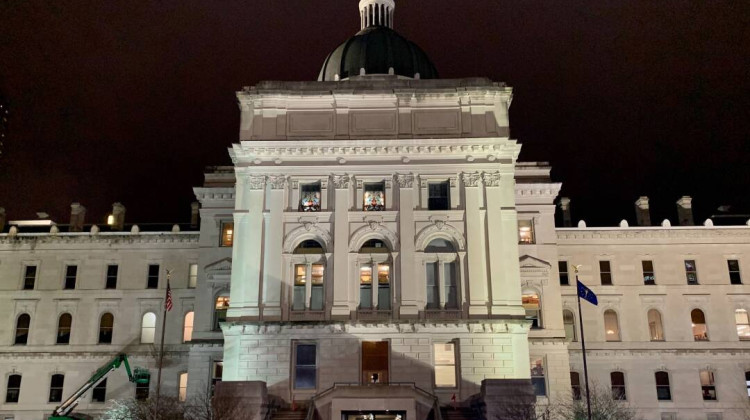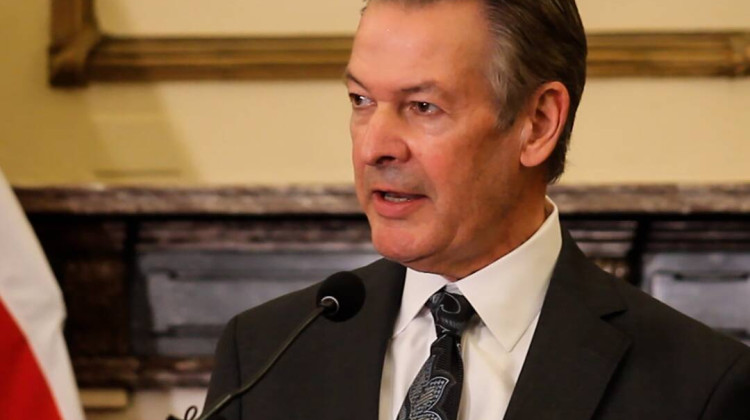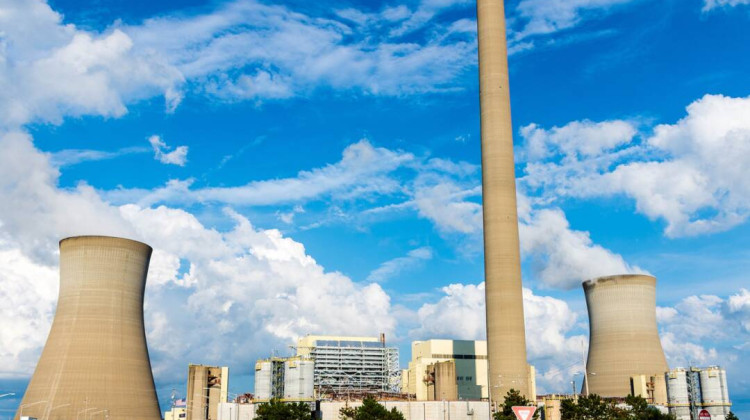
Students gathered at the Indiana Statehouse for the 2019 Youth Climate Strike.
(FILE PHOTO: Steve Burns/WTIU)Why do some people think that climate change isn’t happening? A listener in the southern Indiana town of Newburgh wanted to know.
Nathaniel Geiger is an assistant professor at Indiana University and researches climate engagement.
He said it’s important to know the majority of Hoosiers believe in climate change. Only about 20 to 25 percent think climate change isn’t happening at all or are just unsure.
Geiger said some people reject scientific findings that they can’t see for themselves. People who believe the Earth is flat, for example, usually don’t have the opportunity to go into space and view the Earth itself.
“Similarly, climate change is complex enough — the phenomenon is complex enough that when we experience warmer or cooler temperatures, it's hard to know what to make of those," Geiger said.
Geiger said someone might also reject the idea of climate change if its solutions conflict with your worldview. If they believe the free market is the best way to solve problems, they might have trouble with more regulations on industry to curb emissions.
He said, if a person feels like society is working well just the way it is, they might resonate with a message from an anti-climate advocacy organizations that says:
“Hey, if we take action on climate change, there's going to be all these things that will change — and that will be scary and you don't want that. So let's not take action," Geiger said.
READ MORE: Are climate marches effective? IU researchers say, in some ways, yes
Join the conversation and sign up for the Indiana Two-Way. Text "Indiana" to 73224. Your comments and questions in response to our weekly text help us find the answers you need on statewide issues, including this series on climate change and solutions.
Geiger said some people also might have high "social dominance orientation" or a tendency to accept — or prefer — social hierarchies. He said those with that mindset might think like:
"Well, if climate change is hurting people, those who are fortunate enough can just figure out a way to buy their way out of it or get out of it. If you can't do that you must just not be strong enough," Geiger said.
Geiger said sometimes it's just about how we receive messages about climate change. He said oftentimes climate messaging is framed to appeal to liberals. If you consider yourself conservative, you might not respond to a call to action that says "care for Mother Earth" but may respond to something like "stop polluting nature."
"There's some research out there that shows that when you use language more in terms of pollution — things that trigger this sort of disgust response — those can be things that appeal more to political conservatives. And interestingly, those sorts of messages seem to appeal to political conservatives without turning political liberals off," Geiger said.
Geiger said even people who believe the science can have some denial.
While living in Norway, sociologist Kari Norgaard found that very few people believed climate change wasn't happening. But they still had another kind of denial — "implicatory denial" or the failure to integrate this knowledge of climate change into their lives and turn into action to fix the problem.
Geiger said that’s why it’s important to talk with people about climate change and positive solutions you want to see.
Contact Rebecca at rthiele@iu.edu or follow her on Twitter at @beckythiele.
Indiana Environmental reporting is supported by the Environmental Resilience Institute, an Indiana University Grand Challenge project developing Indiana-specific projections and informed responses to problems of environmental change.
 DONATE
DONATE








 Support WFYI. We can't do it without you.
Support WFYI. We can't do it without you.